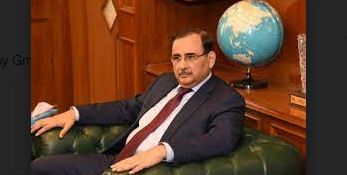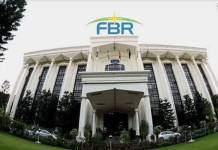DNA
ISLAMABAD: The Federation of Pakistan Chambers of Commerce & Industry’s Businessmen Panel (BMP) has pledged to carry on protests until government withdraws unprecedented hike in power bills and rising fuel cost.
The FPCCI’s Businessmen Panel (BMP) Chairman Mian Anjum Nisar stated that the inflated power bills triggered country-wide protests, demanding that the government to abolish imposed taxes on electricity, saying that increase in electricity bills is unbearable and demanded relief from the government. In July, the then federal cabinet gave its go-ahead to a massive increase in the base tariff of electricity by up to Rs7.50 per unit against the national average tariff determination of Rs4.96 by the power regulator National Electric Power Regulatory Authority. The regulator had hiked the tariff to increase revenue collection for the loss-making power distribution companies during the current fiscal year. According to a Nepra statement, the revised national average tariff for the 2023-24 fiscal year has been determined at Rs29.78 per unit kWh, which is Rs.4.96 per unit higher than the previously determined national average tariff of Rs24.82.
While the regulator cited the rupee’s devaluation, high inflation and interest rates, the addition of new capacities and overall low sales growth as reasons behind the increase, it was actually hiked to meet one of the conditions set by the International Monetary Fund of introducing structural reforms in the energy sector. He said that the applicable tariff would be much higher after including surcharges, taxes, duties and levies, besides monthly and quarterly adjustments.
He said that IPPs were earning huge profits in dollars, but the businesses were badly suffering due to exorbitant power tariffs and the rising cost of doing business. He said that PPAs in Pakistan had made energy cost highest in the region and stressed that to save the industry, the government should renegotiate PPAs with IPPs in the best national interest.
He said that due to the significant depreciation of rupee, the import of industrial raw materials had become very expensive which was pushing up the production cost.
He stressed that the government should take urgent measures to stabilize the value of rupee in order to save the industry from further troubles.
He said that instead of hiking the power tariffs, the government should focus on controlling the transmission and distribution losses and power theft besides improving the performance of power companies to save the consumers from further burden.
The business community was of the view that the government could mobilize the required resources through increasing the number of taxpayers, reducing line losses and power theft, and ending exemptions to narrow the fiscal deficit instead of increasing the power tariff.
He said the last increase in power tariff left the industrial sector, particularly the export industry like textile, uncompetitive in comparison to regional competitors. This may lead to the loss of more export orders and render many more people jobless.
Despite the tariff surge, he said, power companies would not be able to recover the targeted revenue loss of around 28-30%. At the same time, it will force many consumers to stop paying their bills, which have become unbearable.
He asked the government to undertake fundamental reforms in the power sector to make electricity affordable. Besides, the government should launch a crackdown on the habitual power bill defaulters like putting them behind bars. He the latest increase in power tariff would prove counterproductive as it has taken the cost of industrial production up by at least 30% or more in one month. He pointed out that a large number of industrial units had closed down in the past one year due to the government’s strategy to cool the overheated economy. Not a single company is operating at 100% production capacity these days.
BMP Chairman Mian Anjum Nisar observed that the rising interest rates, the uncertain rupee value, soaring fuel prices, higher gas and power tariffs, and unabated food inflation were extremely serious issues that needed to be addressed by the government on a priority basis. He said that since the arrival of the caretaker government dollar has gone out of control. The new finance minister should call of the real stakeholders to finalize policies, suggesting the institutions which are getting free electricity and petrol should be ended.
FPCCI former president stressed that the government should change the basic tariff of IPPs in rupee instead of US dollars as this change would save billions of rupees of the national exchequer and provide electricity at affordable cost to the trade and industry, making our export competitive in the international market. Similarly, the profits of the IPPs should also be paid in local currency instead of US dollars, he said.
Mian Anjum Nisar said that they cannot compete with the international market in the current price of electricity, it is impossible to do business in the current conditions and businesses are closing down, the government should focus on alternative sources of energy to provide cheap electricity, create a conducive investment environment for tax collection.

















